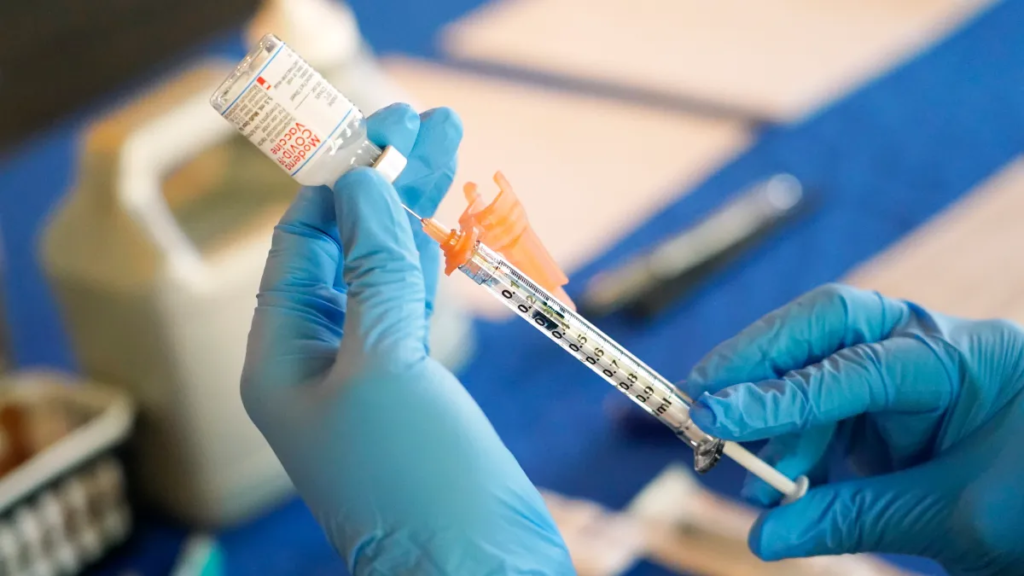A new COVID-19 variant called NB.1.8.1, a subvariant of the Omicron strain, is spreading rapidly across the United States. Health experts are closely monitoring this development as it raises concerns about a possible surge in COVID cases this summer, especially in Texas, where cases have already started to climb.
This article explains what is known about the NB.1.8.1 variant, its impact on public health, and what precautions people should take to stay safe.
What is the NB.1.8.1 COVID Variant?

NB.1.8.1 is a new subvariant of Omicron, the COVID-19 strain responsible for the recent waves of infections globally. Like previous Omicron variants, NB.1.8.1 has mutations that may allow it to spread faster or evade immunity from past infections or vaccines.
According to the Centers for Disease Control and Prevention (CDC), this subvariant has been detected in several U.S. states and is becoming more common in COVID test samples, signaling increased transmission.
Current Spread in the United States
The NB.1.8.1 variant is particularly prevalent in Texas, where local health departments report rising COVID-19 cases linked to this strain. Experts warn that the warmer months and increased travel could contribute to a summer surge if precautions are not followed.
Other states are also reporting new cases of NB.1.8.1, indicating that the variant is spreading across regions, though its impact varies depending on vaccination coverage and local public health measures.
How is NB.1.8.1 Different from Earlier Variants?
While NB.1.8.1 is related to earlier Omicron strains, it carries unique mutations that might help it spread more easily or partly evade the immune system. Scientists are still studying how effective current vaccines and treatments are against this subvariant.
Early data suggest that vaccines continue to offer protection, especially against severe illness and hospitalization, but booster shots may be necessary to maintain strong immunity.
What Does This Mean for Public Health?
Health officials emphasize that the emergence of NB.1.8.1 shows the ongoing evolution of the virus and the need to remain vigilant. The risk of increased cases during the summer months could put additional pressure on healthcare systems if not managed well.
The World Health Organization (WHO) has called for continued surveillance and vaccination efforts worldwide to control new variants like NB.1.8.1.
Vaccination Remains Crucial
Experts agree that staying up to date with COVID-19 vaccines is the best way to protect against NB.1.8.1 and other variants. Booster doses are recommended for eligible individuals, especially those with weaker immune systems or at higher risk of severe disease.

Vaccination helps reduce the severity of infection and lowers the chances of spreading the virus to others, thereby slowing the overall spread.
Preventive Measures to Follow
Alongside vaccination, public health officials recommend continuing simple but effective measures to reduce the risk of infection:
- Wearing masks in crowded or indoor settings
- Practicing good hand hygiene
- Maintaining physical distance when possible
- Staying home if feeling unwell or testing positive
- Getting tested promptly after exposure to COVID-19
These steps help protect individuals and communities, especially vulnerable populations.
Monitoring and Research Underway
Scientists are working to learn more about NB.1.8.1, including its transmissibility, vaccine resistance, and severity. Laboratories across the U.S. and globally are sequencing viral samples and sharing data to track how the variant spreads.
Research on vaccine effectiveness and potential updates to vaccine formulas is ongoing, ensuring preparedness if NB.1.8.1 or future variants pose increased risks.
What Texans and Americans Should Know
For residents in Texas and across the U.S., staying informed and following public health advice is key to reducing the impact of NB.1.8.1. Health departments are urging people to get vaccinated and boosted if eligible and to remain cautious during social gatherings and travel.
Local health officials continue to monitor case numbers closely and may adjust guidelines as needed to protect public health.
Preparing for Possible Summer Surge
Given the recent rise in cases linked to NB.1.8.1, especially in Texas, experts warn that a summer surge could be possible if precautions are relaxed too soon. The combination of more social activity, indoor gatherings in hot weather, and a new spreading variant may create conditions for increased transmission.
Communities can help reduce this risk by promoting vaccination campaigns and encouraging safe practices to keep COVID-19 under control.
Conclusion
The spread of the new COVID variant NB.1.8.1 in the United States is a reminder that the pandemic is still evolving. While current vaccines remain effective in preventing severe illness, vigilance and continued public health efforts are essential to avoid a large summer surge.
By following vaccination recommendations and basic safety measures, Americans can protect themselves and help slow the spread of this new variant.
Also Read – COVID-19 Surge Returns: What You Need to Know Now






